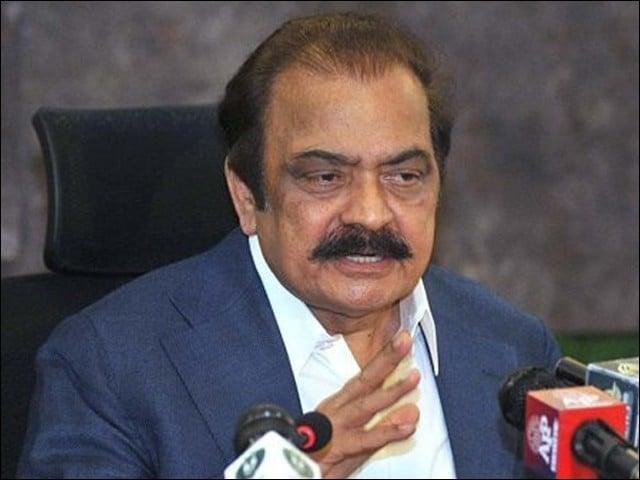Rana Sanaullah, the political adviser to Prime Minister Shehbaz Sharif, announced on Thursday that after extensive negotiations, the PTI has withdrawn its demand for the return of its electoral mandate.
Sanaullah revealed that Prime Minister Shehbaz Sharif had formed a special committee to deal with the written demands of the opposition. The committee will work closely with the government’s allied parties and the Pakistan Peoples Party (PPP) to ensure a comprehensive response to PTI’s demands.
The third round of talks between the two sides took place on Thursday where PTI’s delegation, led by senior leaders including Omar Ayub, formally presented their written demands.
One of the primary demands raised by the PTI in these talks was the setting up of two commissions of inquiry – one to investigate the arrest of PTI Chairman Imran Khan on 9 May 2023, which led to nationwide unrest, and another to to investigate incidents between November 24 and November 27, 2024.
The demand includes investigating the involvement of the police and military in Imran Khan’s arrest and the subsequent violence, as well as examining CCTV footage related to the events of May 9.
In a joint press briefing with Senator Irfan Siddiqui, Rana Sanaullah mentioned that PTI’s other major demand was about the political cases filed against party leaders and supporters. The PTI requested access to detailed records of the FIRs filed against political activists, but the government claimed that no such details had been provided by the PTI during the negotiations.
While the PTI had earlier insisted on returning to its mandate through fresh elections, Rana Sanaullah confirmed that the opposition party had backed down from this demand, marking a shift in its stance.
He added that despite the withdrawal of the mandate demand, the PTI’s stand on other issues, including the commissions of inquiry, remained firm.
The PTI had also earlier raised concerns that “political cases” were being made against its members, an allegation that led to further discussions on the issue.
In his briefing, Rana Sanaullah clarified that the government had set up a committee that would work with the opposition to finalize a response, the outcome of which would be binding.
The formation of the committee happened after the PTI had put forward its written demands for the first time. This third round of talks was expected to address some of the critical issues that have kept Pakistan in a prolonged political stalemate.
Omar Ayub, PTI’s key negotiator, also noted during the media interaction that the government had committed to give a response within seven days.
He stated that the government had agreed to arrange a meeting between the PTI leadership and Imran Khan to take the discussions forward.
Ayub emphasized that while the talks were ongoing, the PTI remained optimistic about resolving the country’s political crisis and restoring normalcy.
In addition to these developments, PTI senior leader Asad Qaiser and other party members raised concerns about the security situation in Khyber Pakhtunkhwa, specifically regarding the destabilization of the region.
He argued that given the complex situation in the province, it was crucial to engage in dialogue with all relevant stakeholders to comprehensively address these issues.
Meanwhile, Mahmood Achakzai, a senior politician, called for national unity and urged all political institutions and forces to align themselves with the constitution and work together to secure Pakistan’s future.
He stressed that the country could only be saved if everyone followed the principles of the constitution and those who opposed it would be held accountable.
The talks between the government and the PTI are aimed at resolving the ongoing political crisis, but so far there has been no significant breakthrough.
The government has indicated it is willing to consider the opposition’s concerns, but the situation remains fluid and both sides await further developments.



